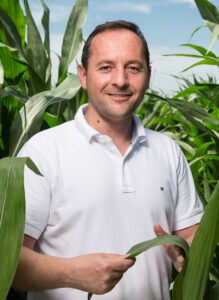Collection
Virtual issue: Agricultural Production Systems sIMulator (APSIM): Modelling New Technologies, Applications and Frontiers
- Submission status
- Closed
Editors
-
Karine Chenu, PhD
Dr Karine Chenu is Associate Professor at the Queensland Alliance for Agriculture and Food Innovation (QAAFI) at the University of Queensland. Karine has expertise in ecophysiology, genetics and modelling with a focus on drought and heat adaptation. Her group is conducting research that supports crop modelling technology, plant design and breeding strategies in winter cereals. Her research mainly concerns: - understanding trait physiology and genetics, - developing gene-to-phenotype crop modelling - exploring novel combinations of genotypes, environments and management practices to assist productivity improvement in changing environment
-
Peter Thorburn, PhD
Dr Peter Thorburn an agricultural scientist with strong multidisciplinary interests in the dynamics of soil-plant interactions and a strong commitment to enhancing the sustainability of agricultural systems. With a background in soil science and plant physiology, his work focuses on developing and applying simulation models to understand soil and plant interactions in agricultural production systems, aiming to determine management systems that can reduce detrimental environmental impacts while, still continuing to produce significant economic and social outcomes in current and future climates. His research has won international awards.
-
Matthew Harrison, PhD
Associate Professor Matthew Harrison is an award-winning scientist at the Tasmanian Institute of Agriculture in Launceston, Australia. Matt is internationally renowned for his work in improving the sustainability of agricultural and land-use systems through innovative economic, environmental and social solutions to demand-driven problems. His team uses systems thinking to develop skills, technologies and practices aimed at improving food production, enterprise profitability, social license to operate and long-term agri-food sustainability.
-
Sotirios Archontoulis, PhD
Sotirios Archontoulis is a professor of integrated cropping systems at the Department of Agronomy. His research aims to predict impacts (e.g. climate change), explain causes (e.g. high/low yields) and design future strategies to improve crop productivity and environmental sustainability across spatial and temporal scales. His approach combines field experimentation and use of agricultural systems process-based models to explain Genotype x Environment x Management interactions and enable prediction and design at scale.





